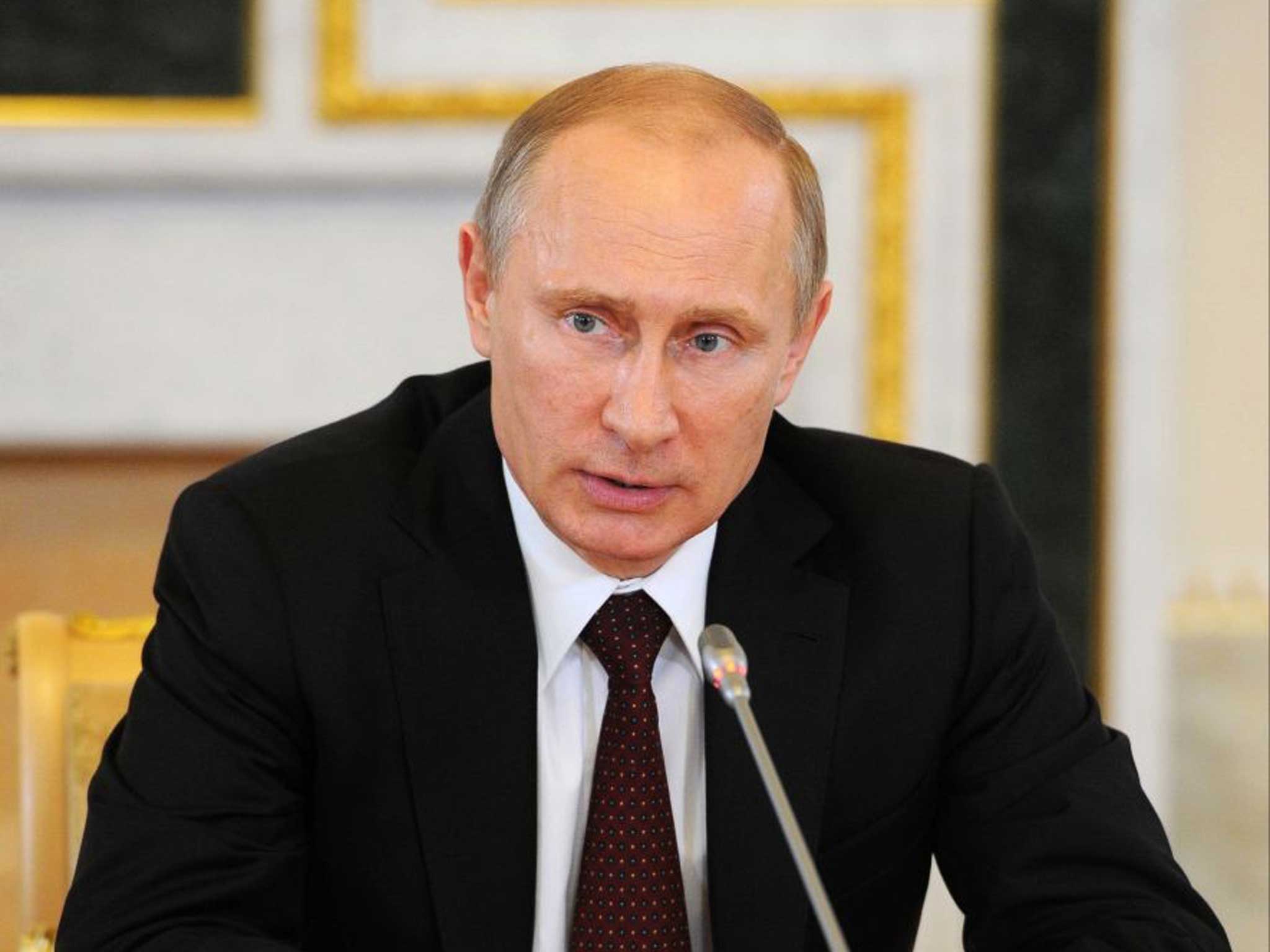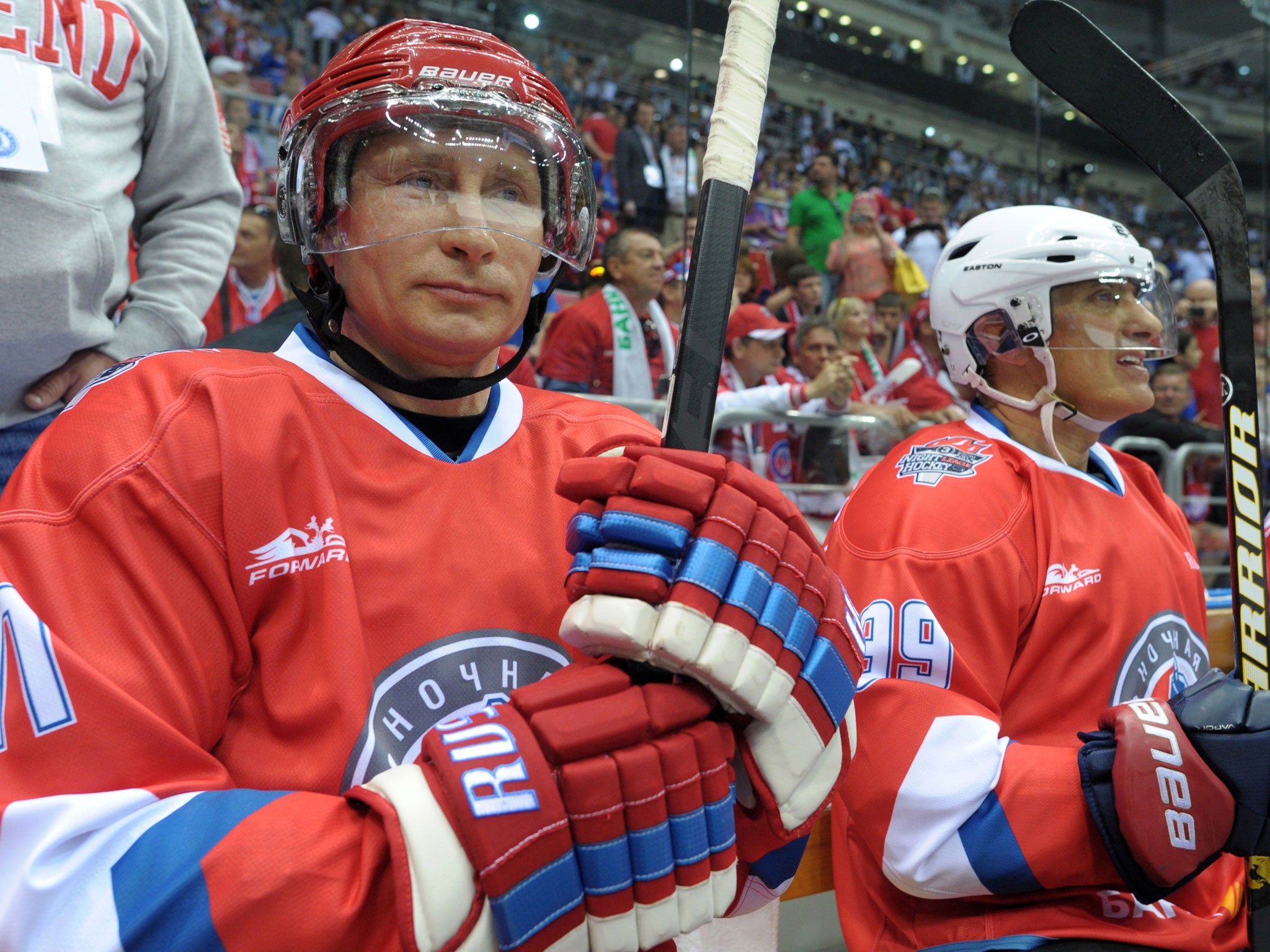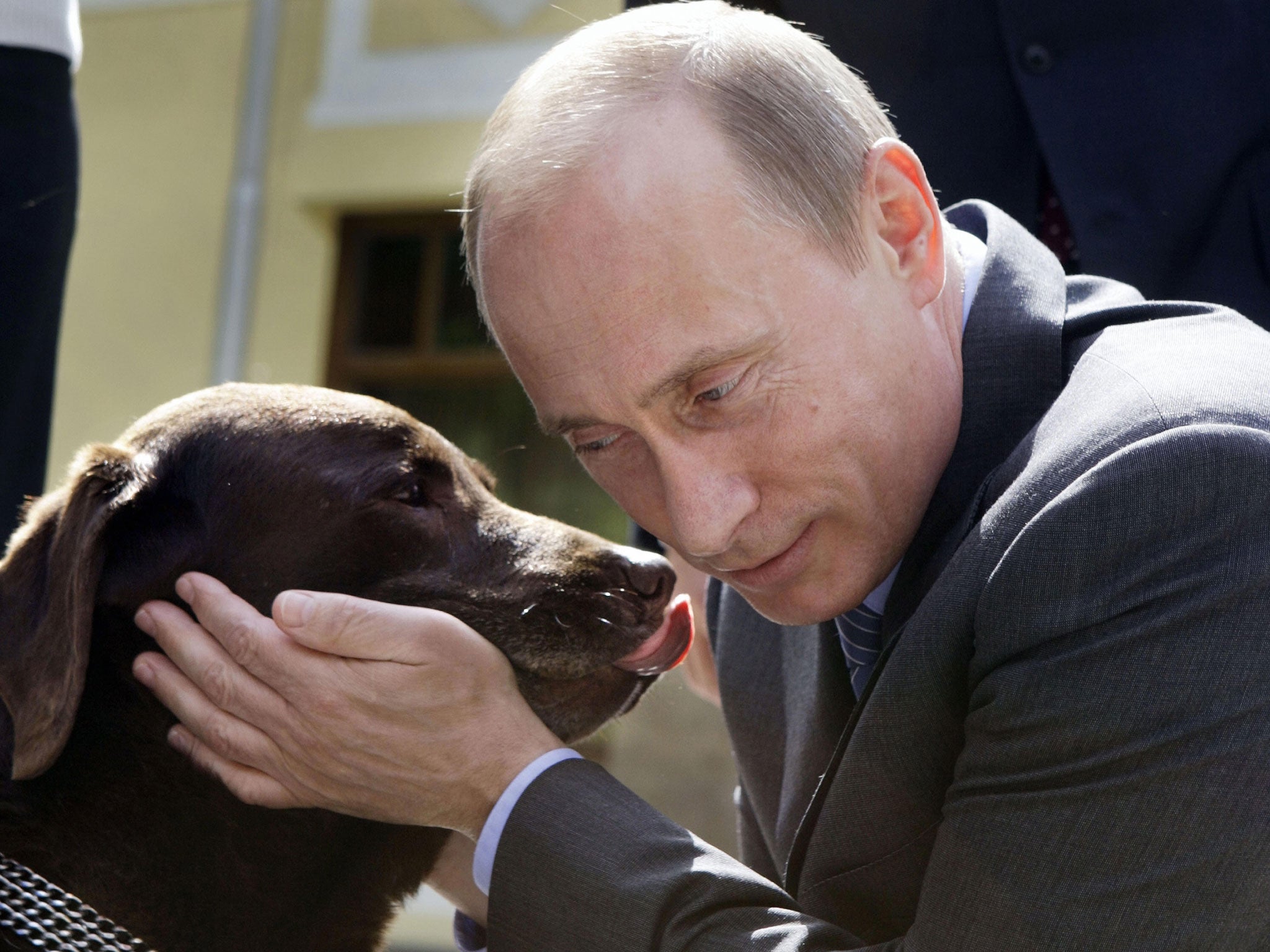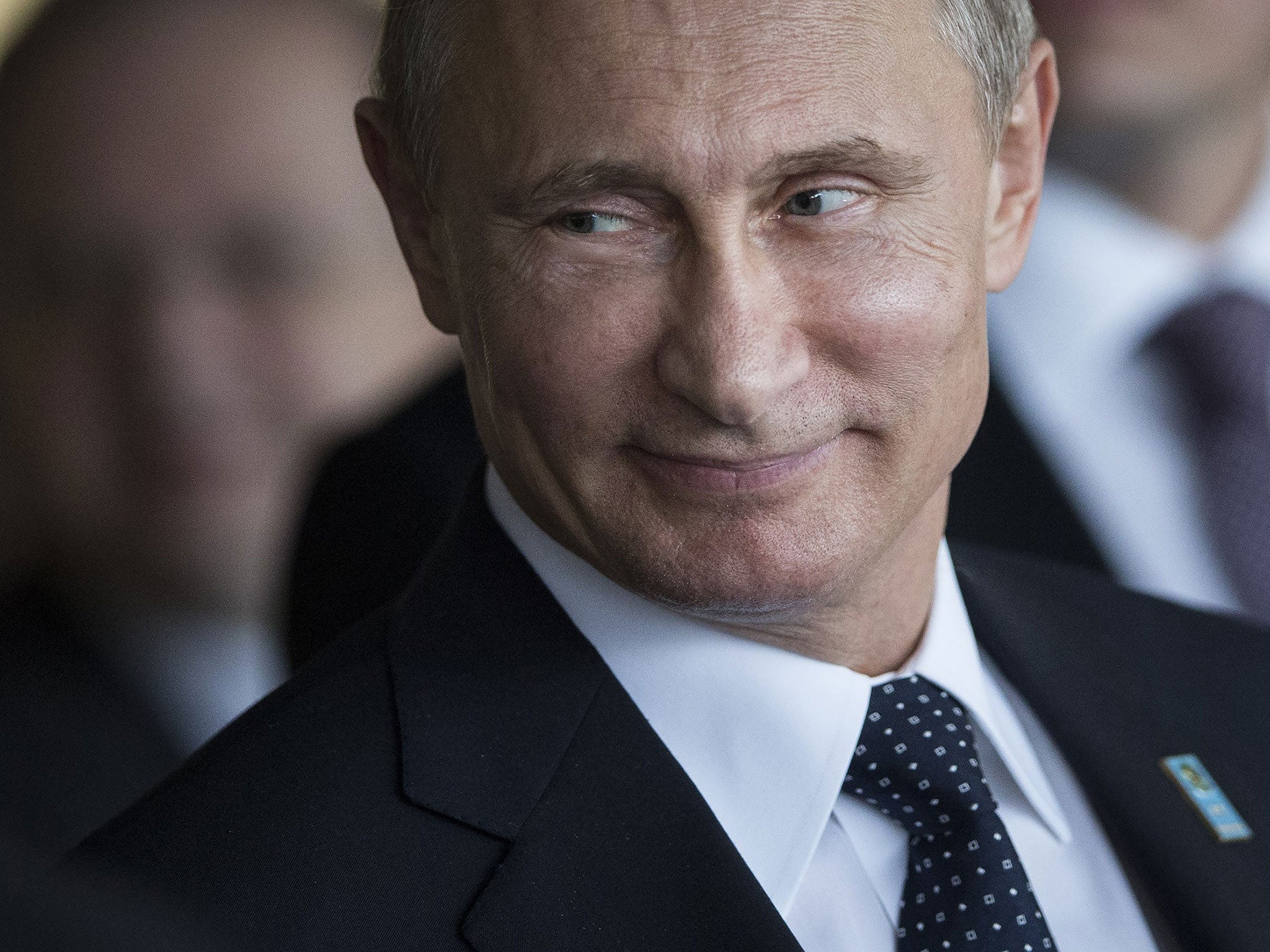A day in the life of Vladimir Putin: The dictator in his labyrinth
The perfectly controlled environment Russia’s leader inhabits, his rigid routines, the ceremonialisation of all contact and lack of any spontaneity are like a prison in which he is isolated

Your support helps us to tell the story
From reproductive rights to climate change to Big Tech, The Independent is on the ground when the story is developing. Whether it's investigating the financials of Elon Musk's pro-Trump PAC or producing our latest documentary, 'The A Word', which shines a light on the American women fighting for reproductive rights, we know how important it is to parse out the facts from the messaging.
At such a critical moment in US history, we need reporters on the ground. Your donation allows us to keep sending journalists to speak to both sides of the story.
The Independent is trusted by Americans across the entire political spectrum. And unlike many other quality news outlets, we choose not to lock Americans out of our reporting and analysis with paywalls. We believe quality journalism should be available to everyone, paid for by those who can afford it.
Your support makes all the difference.The President wakes late and eats shortly after noon. He begins with the simplest of breakfasts. There is always cottage cheese. His cooked portion is always substantial; omelette or occasionally porridge. He likes quails’ eggs. He drinks fruit juice. The food is forever fresh: baskets of his favourites dispatched regularly from the farmland estates of the Patriarch Kirill, Russia’s religious leader.
He is then served coffee. His courtiers have been summoned but these first two hours are taken up with swimming. The President enjoys this solitary time in the water. This is where the political assistants suggest he gets much of Russia’s thinking done.
The courtiers joke and idle and cross their legs in the lacquered wood waiting rooms. He rarely comes to them quickly. They say three, perhaps four hours is the normal wait for a minister. The President likes to spend some time in the gym where Russian rolling news is switched on. There he enjoys the weights much more than the exercise bikes.
He likes to work late into the night. He summons his men at the hours that suit his mental clarity – the cold hours where everything is clearer.
The books he finds most interesting are history books. Heavy, respectable tomes: about Ivan the Terrible, Catherine II, Peter the Great.
But there sometimes fly rumours: that he has read a novel. In 2006, the President is said to have read a thriller in which working-class men beat up Chechens and cops and seize the governor’s office from corrupt thieves with machine guns – Sankya by Zakhar Prilepin. Now those who claim to know his bedside say he has much enjoyed The Third Empire, a fantasy about an imaginary Latin American historian from 2054, who recounts the exploits of Tsar Vladimir II, the in-gatherer of all Russian lands. But his courtiers are at pains to make it clear – the President is no reader.
When the President dresses he chooses to wear only tailored, bespoke suits in conservative colours. His choice of ties is usually dour.
And now power begins. The early afternoon is about briefing notes. This mostly takes place at his heavy wooden desk. These are offices without screens. The President uses only the most secure technologies: red folders with paper documents, and fixed-line Soviet Warera telephones.
The master begins his work day by reading three thick leather-bound folders. The first – his report on the home front compiled by the FSB, his domestic intelligence service. The second – his report on international affairs compiled by the SVR, his foreign intelligence. The third – his report on the court complied by the FSO, his army of close protection.
He is obsessed with information. The thickest, fattest folders at his request are not intelligence reports: they are press clippings. His hands first open the Russian press digest. The most important papers come at the front: the obsequious national tabloids. These matter most, with their millions of readers.
Then he moves on to Russia’s quality press: the lightly censored broadsheets. These matter in the Kremlin court: this is their gossip, their columnists, their analysis. He pays particular attention to the regular columns about Vladimir Putin written by Andrey Kolesnikov in Kommersant. His courtiers say he enjoys them greatly and always reads right to the end.

Then the least important folders: his foreign press. These are clippings compiled both in the presidential administration, and his Foreign Ministry. The departments do not hide from him the bad news: the President must know how far these foreigners demonise him. But to please him, they also dutifully include materials in German in the original, the language in which his long-ago KGB posting in Dresden left him fluent.
The President rarely uses the internet. However, from time to time, his advisers have shown some satirical online videos: he must know how they mock him.
His life has become ceremonial: an endless procession of gilded rooms. His routine is parcelled up into thousands of units of 15 minutes and planned for months, if not years ahead.
He follows the daily schedule handed to him. Mostly, the meetings are meaningless. There are those who come to pay homage to him: receiving the Prince of Bahrain or awarding bronze medals to Udmurt Heroes of Labour.
He does not live in Moscow. He dislikes the place: the traffic, the pollution, the human congestion. The President has chosen the palace at Novo-Ogaryovo as his residence. Home is out there, to the west of the city – out in his parkland.
A route is closed and cleared of all traffic when the President chooses to commute. He can reach the Kremlin in less than 25 minutes, while Moscow sits in gridlock. He dislikes coming to the Kremlin. He has cut down his meetings in Moscow since 2012 to a strict minimum.
The President keeps busy, even on Saturday and Sunday. At weekends, his schedule becomes more haphazard: but there are sometimes study sessions in the afternoon. Mostly, English language. His teacher helps him learn difficult words. There are times on Sundays he is said to pray or make a confession. But courtiers familiar with the office of the Patriarch are at pains to clarify – though not an atheist – his life is not that of a Christian.
The President loves ice hockey. This is his favourite sport. The President practises ice hockey as much as he can. Every few weeks, the President organises a game.

A mark of intimacy, the treasured invitation, the most bragged-about occasion in oligarchic society, is watching one of the President’s hockey matches. These are his intimates – most, like him, from St Petersburg, the old associates, the ones he trusts. They are mostly businessmen, and on the US sanctions list. Men like the brothers Arkady and Boris Rotenberg or Gennady Timchenko. They play and they lose. The teams are filled out with bodyguards. The presidential bodyguards wear his shirt. The bodyguards of Dmitry Medvedev, his Prime Minister, fill up the opposing team. The Prime Minister himself is rarely present.
The President loves animals. He smiles at the sight of creatures that refuse to obey him. The President finds solace in the company of a black Labrador which is not afraid of him.
The court interpreter says his life is monotonous. His motorcade goes in two directions: either to the Kremlin or to the airport. His planes leave from the Presidential terminal: Vnukovo 2. His planes travel in threes. One carries his motorcade; one, his delegation; the third that flies ahead for him. The fleet leaves Vnukovo 2 more than five times a month. His wish is to be everywhere.
The visits abroad are conducted differently: the intelligence service plans ahead. The pilot group comes a month before the President to the capital in question. The luxury hotel his administration will occupy is inspected. The FSB and the SVR co-operate in this delicate matter. How secure is that room? How bio-contaminable is this bathroom?
The court has established itself on foreign soil a week before he arrives. They have booked and sealed 200 rooms. There is a special lift uniquely prepared for the presidential use. His room is sealed: no one is allowed access to it. This is the work of the special security team. The hotel sheets and toiletries are removed and replaced, their places filled with wash stuffs and fresh fruit under special Kremlin anti-contamination seals.
Meanwhile everything he will need arrives by the plane-load: Russian cooks, Russian cleaners, Russian waiters. Meanwhile, teams of diplomats engage in food negotiations with the host.

The President cannot be served milk products, though that is contradicted by orders of Russian security services. The President cannot be offered food by the host – including the head of state or government. The President cannot consume foreign foodstuffs that have not been cleared by the Kremlin.
There is uncertainty here amongst the negotiators. Perhaps the President is secretly lactose intolerant? More likely, he is merely paranoid about poisoning. Russian materials are shipped in advance for the Presidential platter, where local cooks will be supervised by the FSB, SVR, FSO and their team of tasters. The President has refused even to touch food at foreign banquets.
The President behaves as though he is made of bronze, as if he shines. He seems to know that they will flinch when meeting his eye. “He doesn’t talk,” the interpreter says. “He feels no need to smile... At any one time there are 10 people around him... You cannot get more than three metres close to him because the space is guarded so carefully. He is endlessly surrounded by whispering aides, cameramen, bodyguards.
“When he enters a room the sound level drops. There was a time when I spoke loudly – ‘Ladies and gentlemen, we must move to the next room for the signature’ – and a minister grabbed my hand. ‘Shut up,’ he hissed. ‘He is here.’”

The President thinks very little on his feet: the speeches are all pre-written, the positions all pre-conceived, the negotiations mostly commercial in nature. “He looks emotionless, as if nothing really touches him,” the interpreter remembers. “As if he is hardly aware of what happens around him. As if he is paying little attention to these people. As if he is worn out... He has spent so long as an icon he is not used to anyone penetrating... He is not used to anything not being so perfectly controlled for him. He is isolated, trapped.”
“The impression... you get from being close to him is that he would have been quite happy to step down. But he knows he has failed to rule Russia in anything else but a feudal way. And the moment his grip falters ... it will all come crashing down and he will go to jail ... and Moscow will burn like Kiev.”
There are courtiers who claim to have heard him speak frankly. There was one who remembers one warm summer evening where he began to talk openly about the fate of his country. The President asked those present who were the greatest Russian traitors. But he did not wait for them to answer: the greatest criminals in our history were those weaklings who threw the power on the floor – Nicholas II and Mikhail Gorbachev – who allowed the power to be picked up by the hysterics and the mad men, he told them. Those courtiers then present claim that the President vowed never to do the same.
This is an amalgamation of more than three years of interviews for the author’s book ‘Fragile Empire: How Russia Fell in and Out of Love with Vladimir Putin’ (Yale). The original article appeared in Newsweek magazine.
Read the original on Newsweek here
© Newsweek
Join our commenting forum
Join thought-provoking conversations, follow other Independent readers and see their replies
Comments